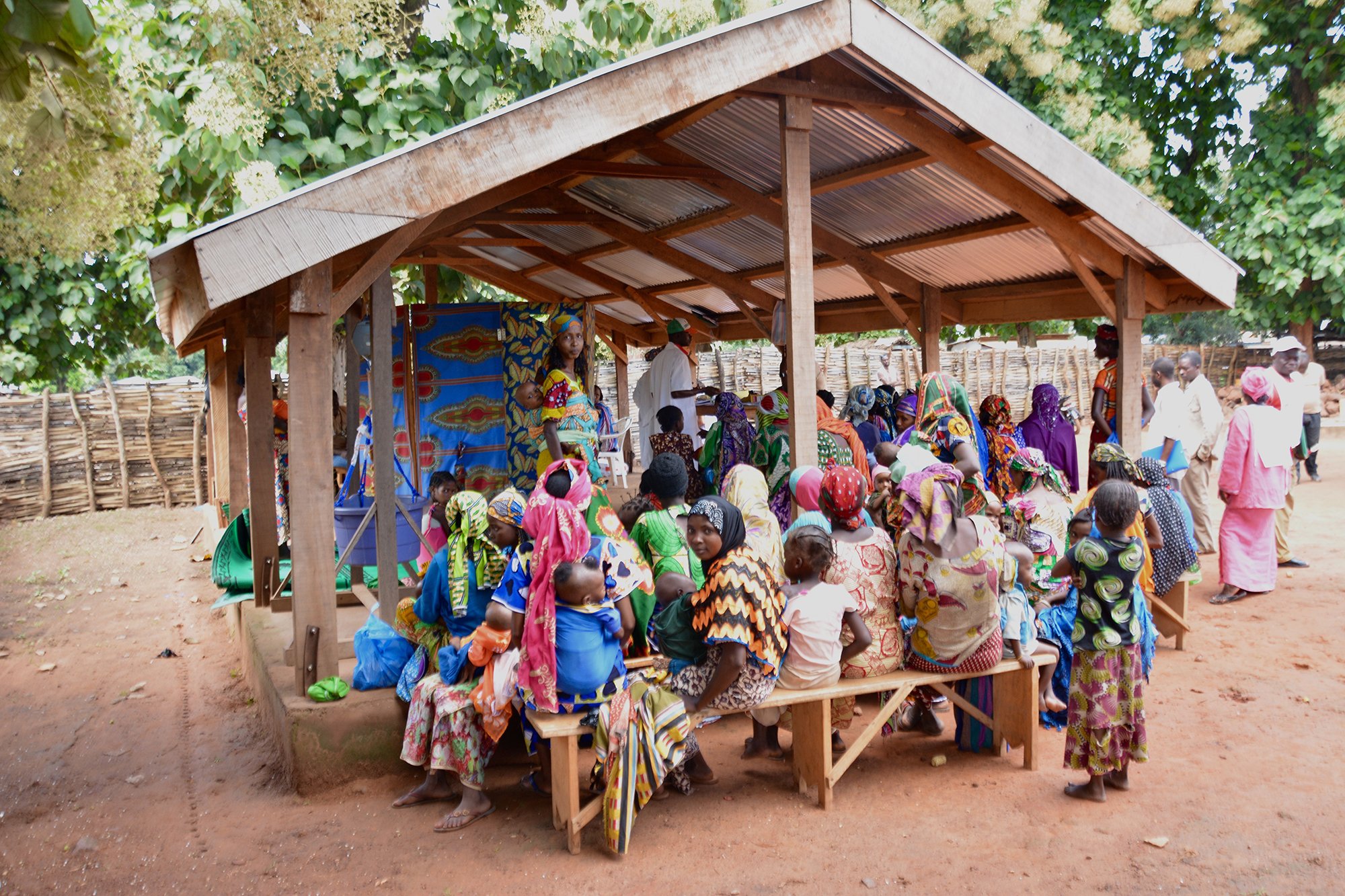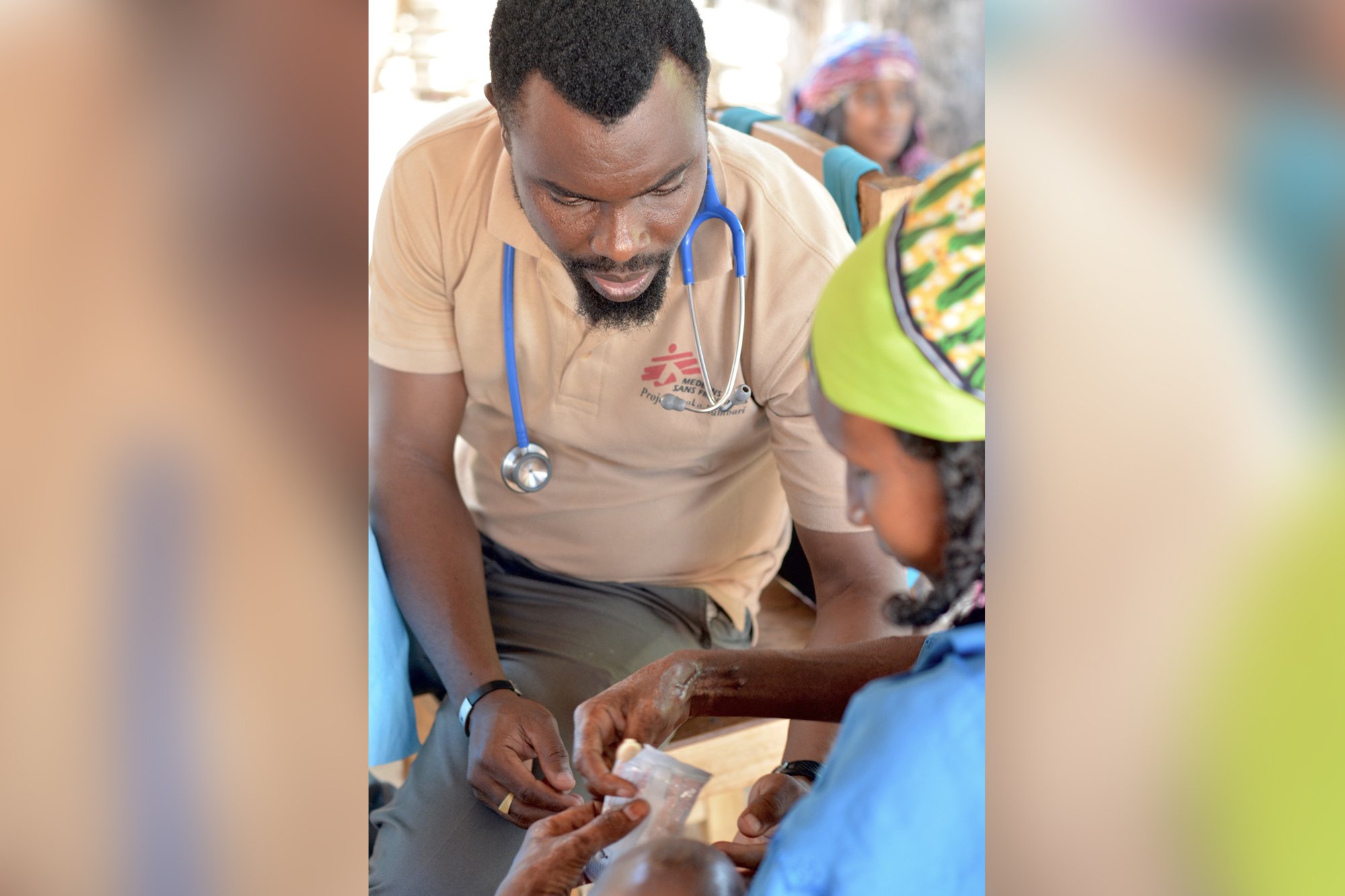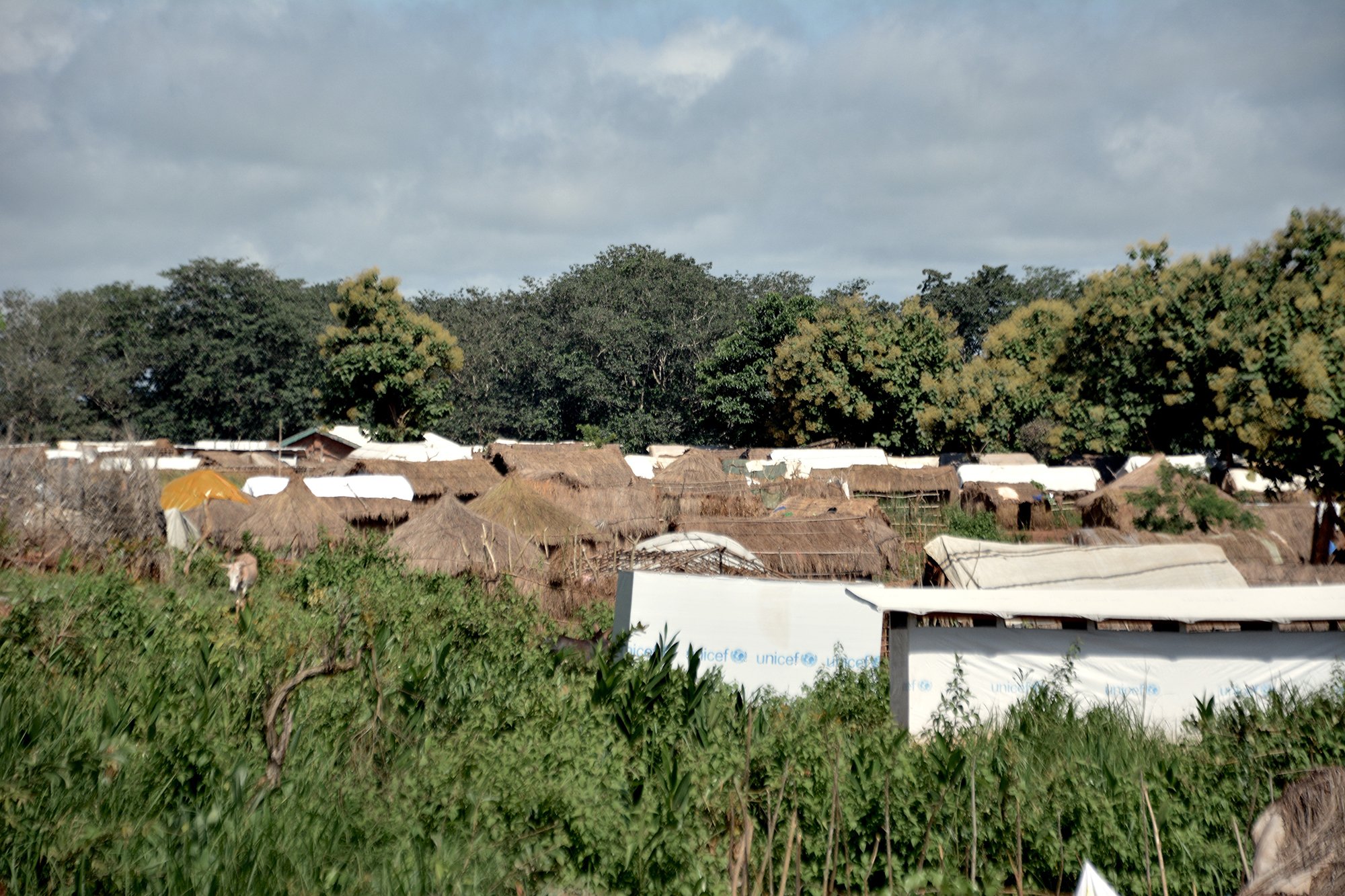Bambari, Central African Republic: People suffer as armed groups return to the town



Aug 31, 2018
“One day, you will come back and you won’t find anyone here because the problems will have killed us all.”
Under the front porch of an abandoned building in the neighbourhood of Kidjigra sit C1 and her 11 children. She arrived here two months ago, when the violence reached Bambari, in Central African Republic, again. She had to flee the camp for internally displaced persons (IDP) where she had been living in for the past four years to find refuge on the other side of the Ouaka river. “Last May, armed men arrived in the camp and started to threaten people. They stole everything that we had left: a bicycle and some ducks,” she explains. “Since then, we’ve been trying to survive here, by selling wood to feed the family.”
Since a new cycle of violence hit the city of Bambari in May 2018, there are many stories like C’s testimony. Forty thousand people were already living in IDP sites inside and on the outskirts of the city, but 3,000 more had to leave their homes between May and June to flee the fighting. The relative period of calm that Bambari had known following the UN MINUSCA2 disarmament operation in February 2017 was completely shattered on 14th May 2018. Armed groups rapidly retook control of the city.
Now, two armed groups control one part of the city, with the Ouaka river drawing a natural border between both sides and communities. But, on either shore, people’s belongings are the main target of the armed men wandering the town. Violent crime has become a daily reality for the inhabitants of Bambari. “The problem we face now has nothing to do with religion or ethnicity; people are harassed and assaulted because of what they own. I don’t face any trouble anymore, but it’s because I have nothing left: no money, no bicycle, no motorcycle, not even a cellphone,” says C.
The MSF hospital is located in between these two zones. Staff there have seen the results of this pervasive violence. They have treated over 70 patients with gun or bladed-weapon wounds since May.
A is one of them. He is Muslim and was caught in between gunfire along with his brother, who was killed instantly. A. was injured by a bullet in the leg. While he was being treated at the hospital in Bambari, he saw groups of armed men enter the facility twice.
“The first time was on 15th May. Armed men entered the hospital and we hid under our beds. The Christian patients helped us and fortunately, the hospital staff persuaded the group not to enter the room we were staying in,” he remembers. “Three weeks later, another armed group entered the hospital. This time, as soon as we heard that they were coming, we fled. We were too worried about what could happen. Because I couldn’t walk with my wounded leg, people put me on a blanket and carried me.” After this double incursion, 21 shell casing were found inside the hospital.
A few weeks later, A. finally decided to come back to the hospital for treatment because his wound was getting worse. “We should always feel safe at the hospital, but with what happened to us, we know that even here, we’re not spared from the fighting.”
As well as those wounded in the fighting, general access to healthcare is also being impacted by the new violence. Because of the insecurity, the MSF-supported health centre, located in the Elevage neighbourhood, had to stay closed for more than a week, depriving residents of local primary healthcare. Armed men took advantage of the closure to loot the centre, stealing, among other things, the fridge in which vaccines for children and pregnant women were stored.
The Bambari hospital also witnessed a sharp decrease in its activities. The number of children admitted into the hospital fell from more than 230 in April to only 70 in June. Kate, an MSF nurse explains, “We had two weeks where there were empty nutrition rooms because people were too scared to come to the hospital.” Narcisse, one of her colleagues, makes a similar assessment when talking about the surgery department, “After the lull in July our activities went back to normal, but many patients arrived in a critical state. They haven’t been able to come earlier because of the insecurity. We lost a patient suffering from an abscessed tooth, which had worsened so much that we could not save him. And another patient’s leg was completely gangrened because his gunshot wound hadn’t been treated properly.”
Over the past few weeks, the fighting has reduced to sporadic gunshots and traffic in the city now seems to be back to normal. However, people still live in fear of indiscriminate attacks. The recent flare-up of violence left Bambari’s inhabitants, already deeply affected by the 2013-2014 conflict, with a bitter feeling of déjà-vu.
“Already in 2014, we had to flee our homes because of armed groups’ threats. Now, we had to leave the IDP camp. I try to stay hopeful, especially for my children, but fleeing constantly from one place to the next has taken all of my strength,” admits C, whose face shows the tiredness of years spent trying to escape the violence.
1: Only the first initial of the name is used here, to protect the person’s identity.
2: MINUSCA: Multidimensional Integrated Stabilization Mission in the Central African Republic MINUSCA





Leave a Comment